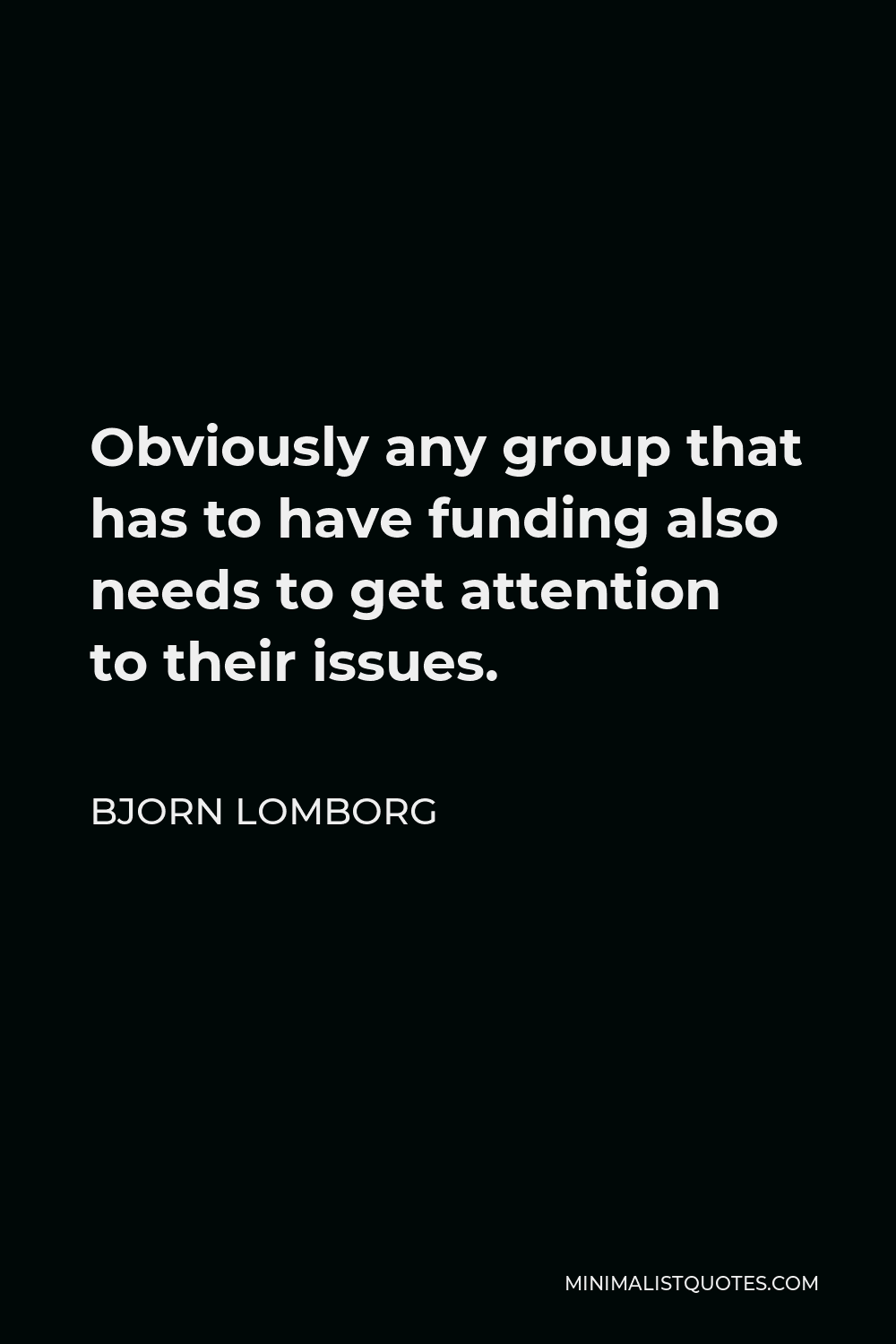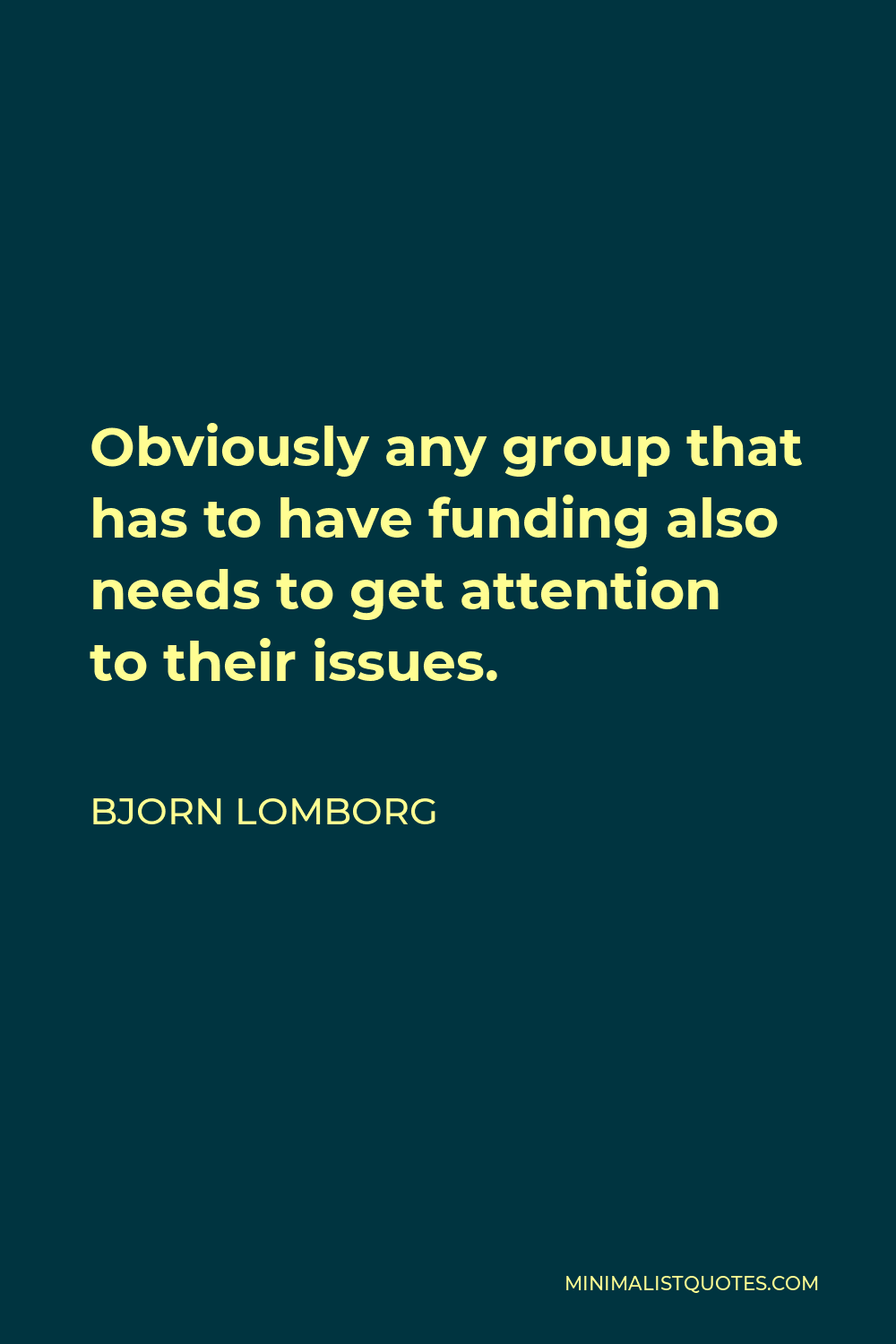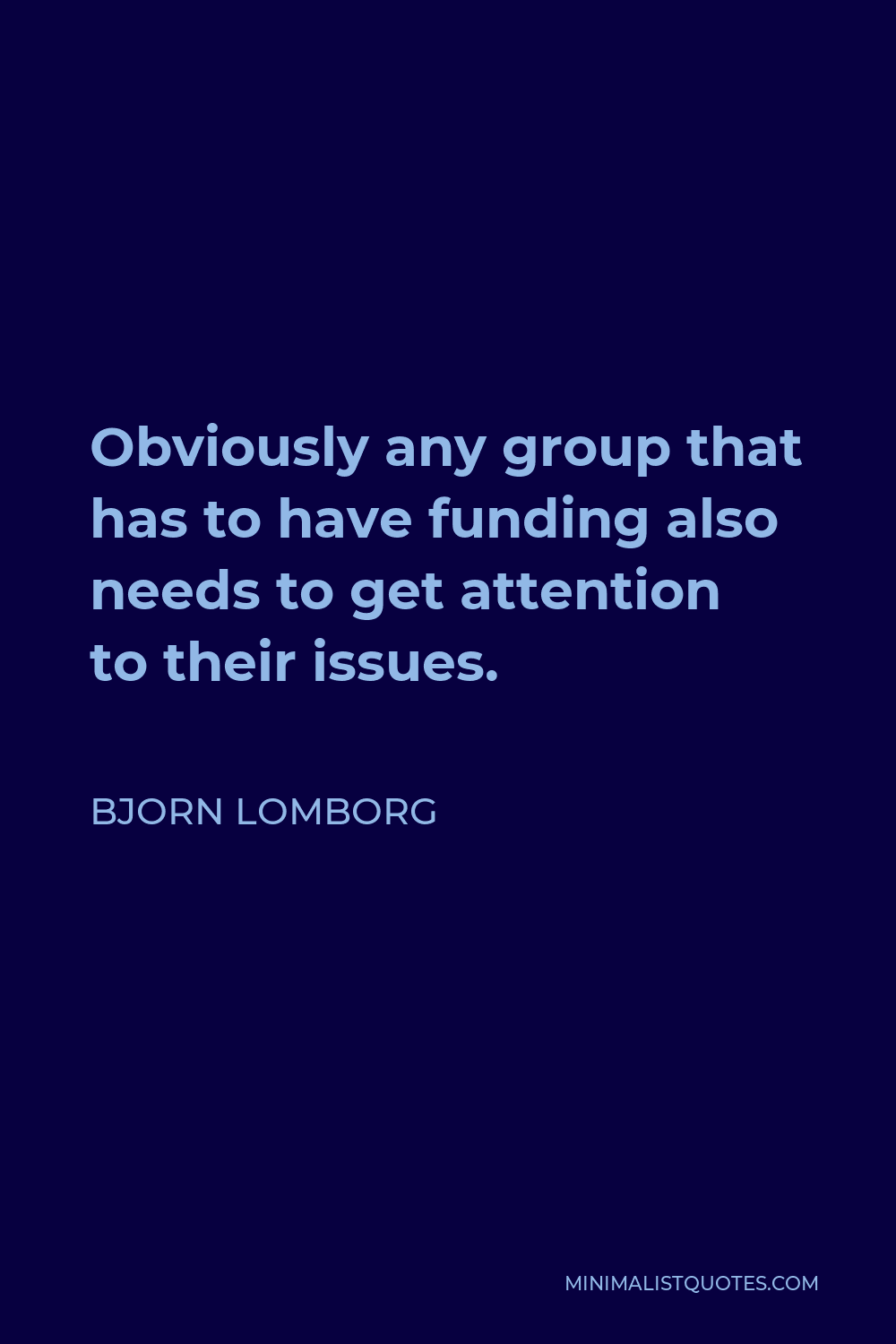Winter regularly takes many more lives than any heat wave: 25,000 to 50,000 each year die in Britain from excess cold.
BJORN LOMBORGObviously any group that has to have funding also needs to get attention to their issues.
More Bjorn Lomborg Quotes
-






-





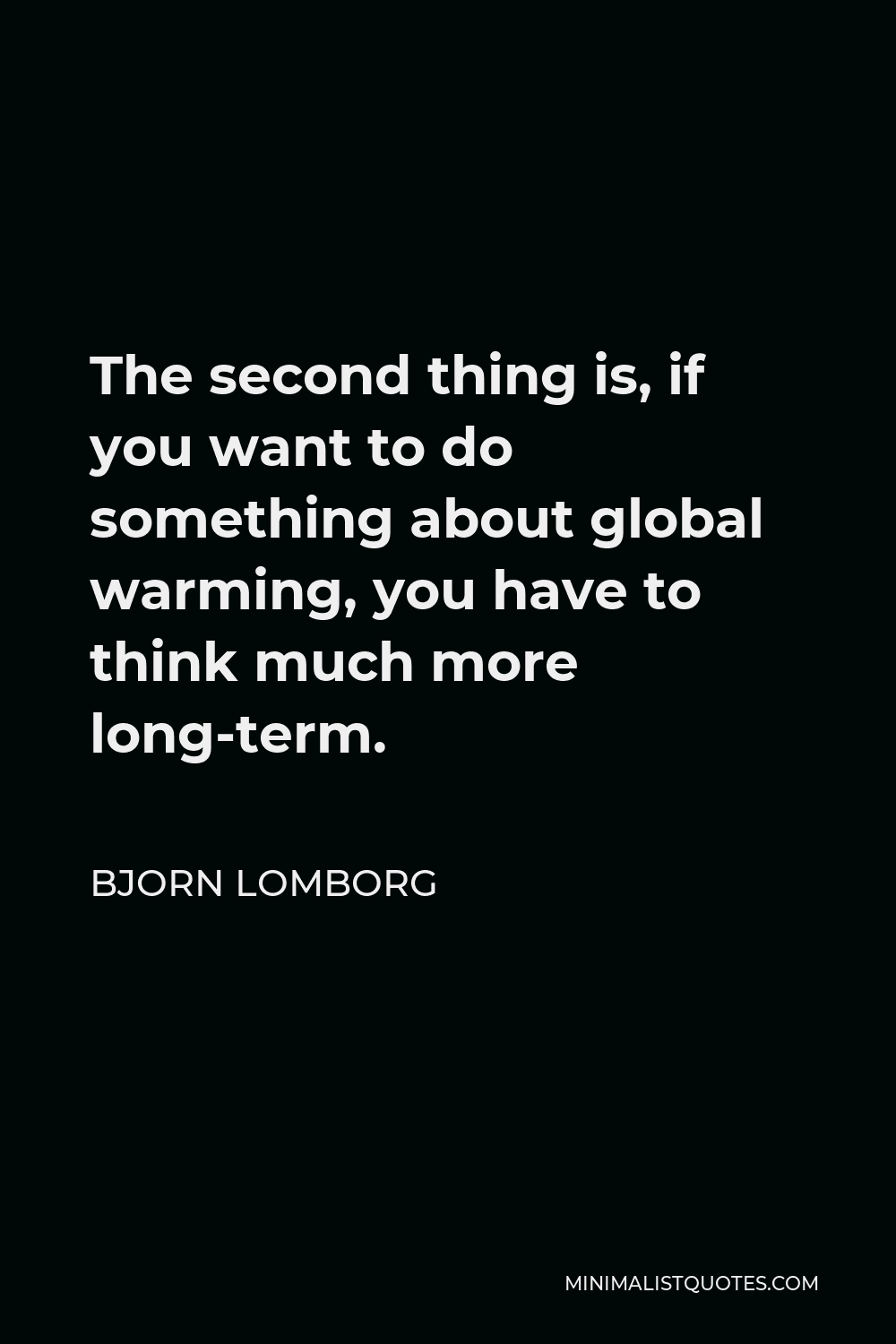
The second thing is, if you want to do something about global warming, you have to think much more long-term.
BJORN LOMBORG -





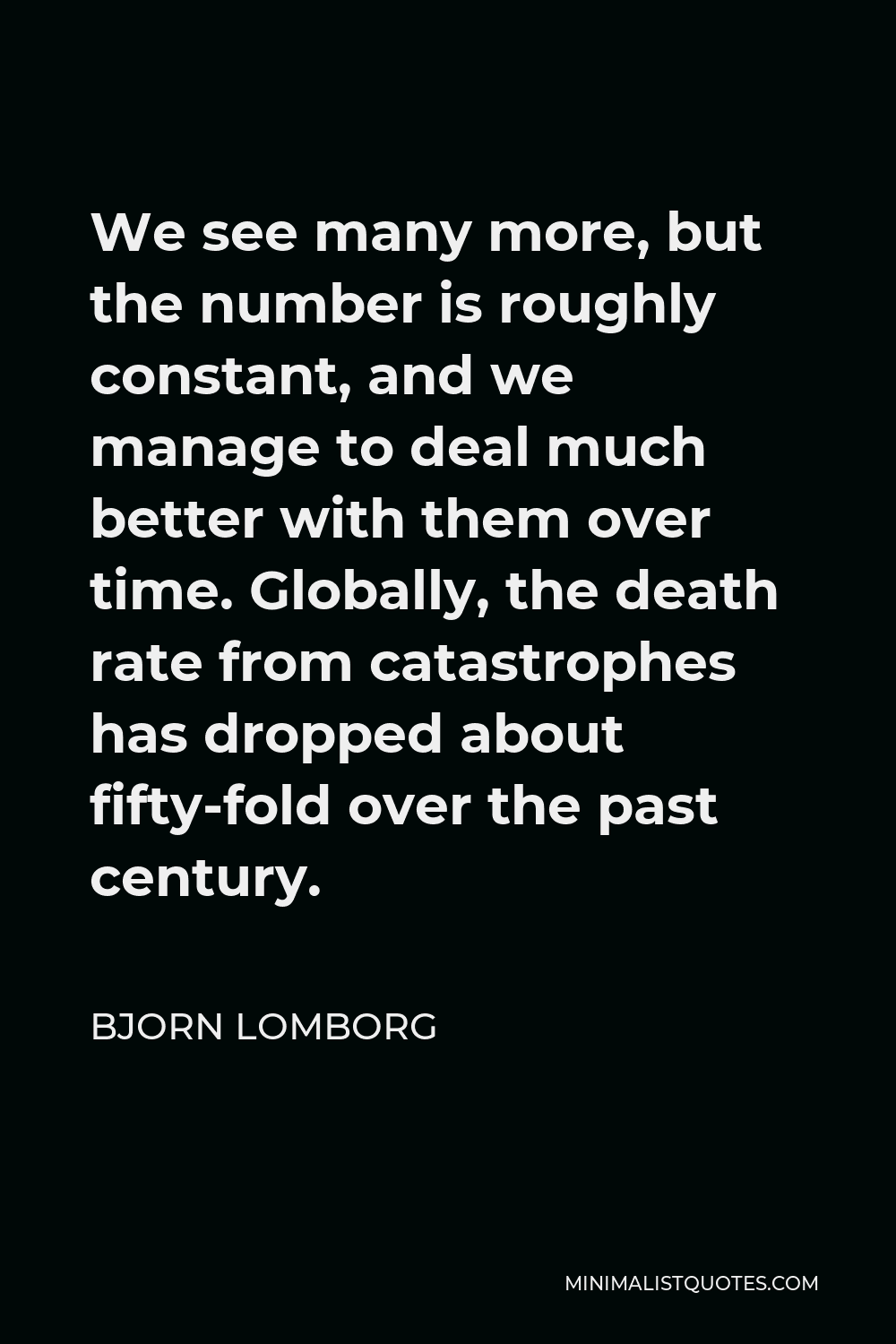
We see many more, but the number is roughly constant, and we manage to deal much better with them over time. Globally, the death rate from catastrophes has dropped about fifty-fold over the past century.
BJORN LOMBORG -





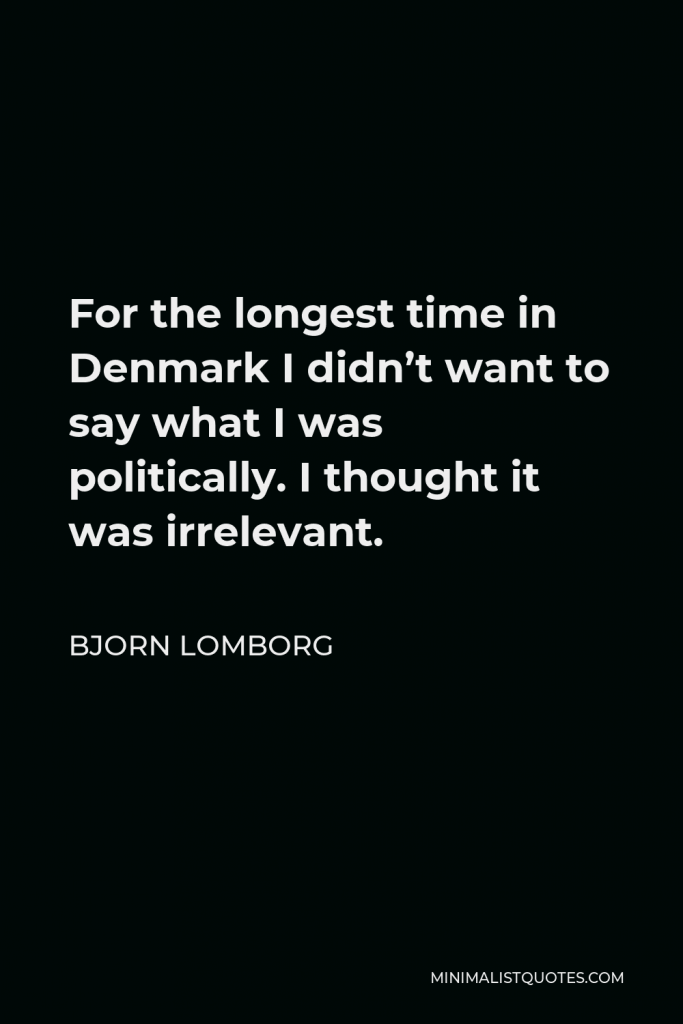

For the longest time in Denmark I didn’t want to say what I was politically. I thought it was irrelevant.
BJORN LOMBORG -





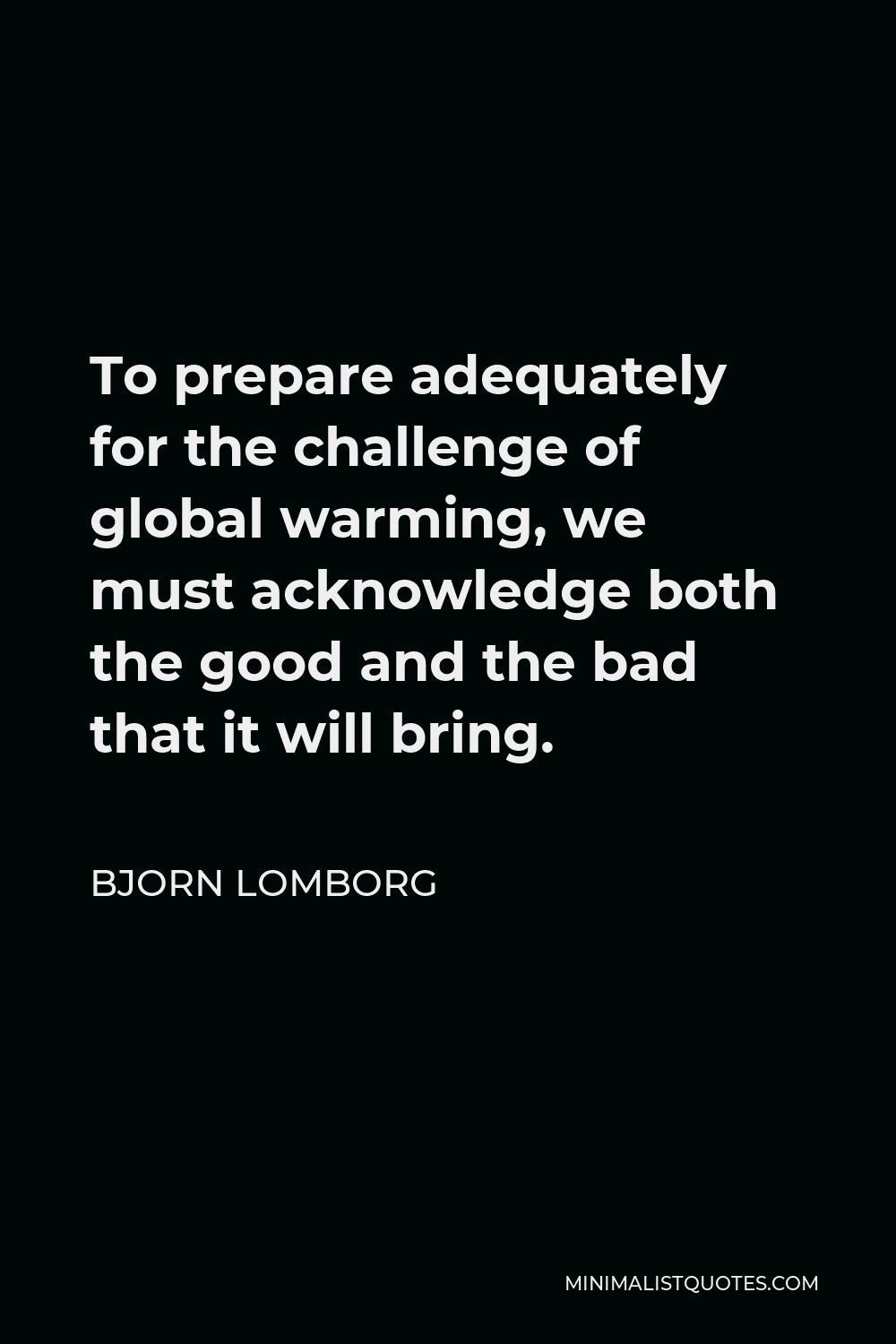
To prepare adequately for the challenge of global warming, we must acknowledge both the good and the bad that it will bring.
BJORN LOMBORG -





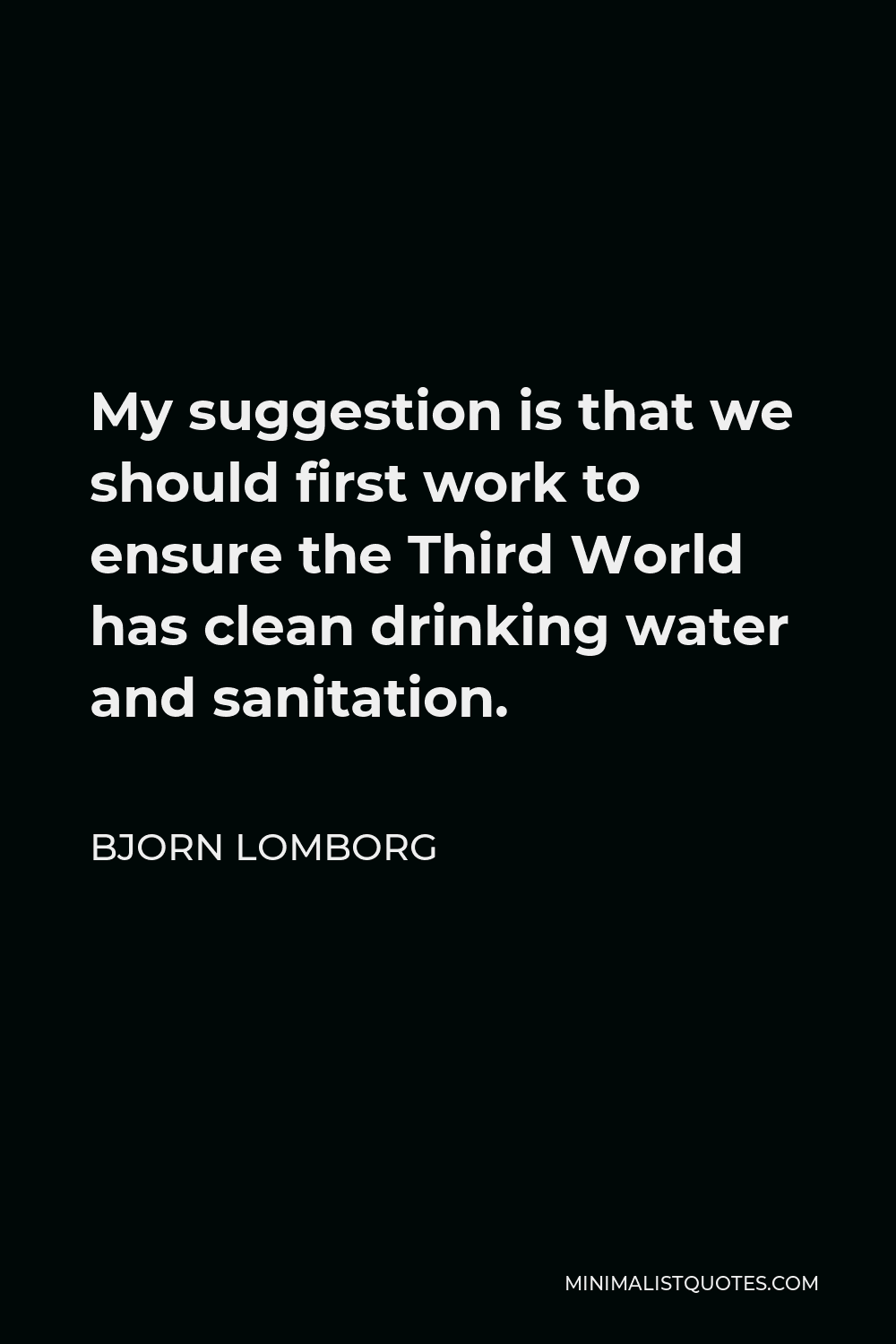
My suggestion is that we should first work to ensure the Third World has clean drinking water and sanitation.
BJORN LOMBORG -





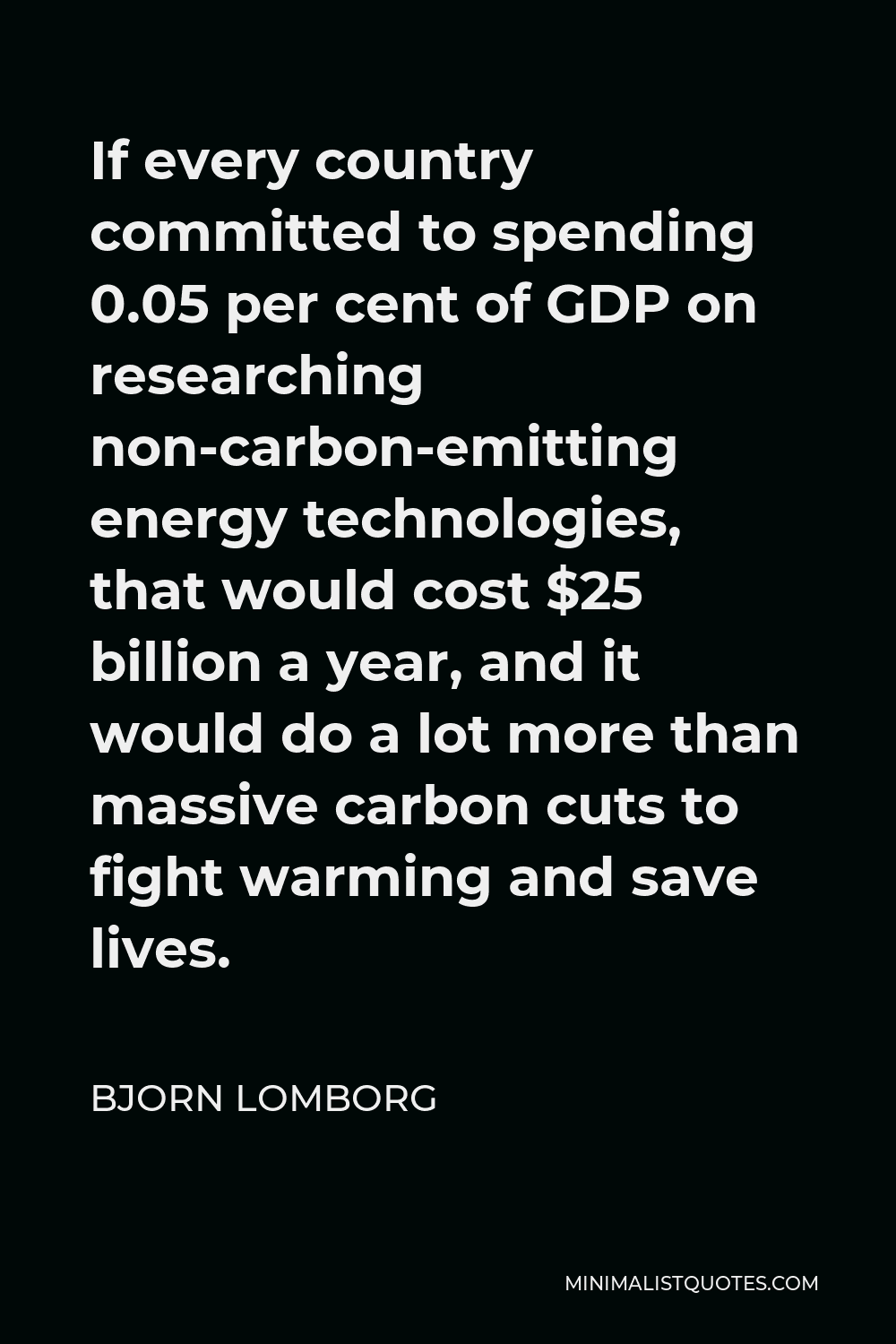
If every country committed to spending 0.05 per cent of GDP on researching non-carbon-emitting energy technologies, that would cost $25 billion a year, and it would do a lot more than massive carbon cuts to fight warming and save lives.
BJORN LOMBORG -





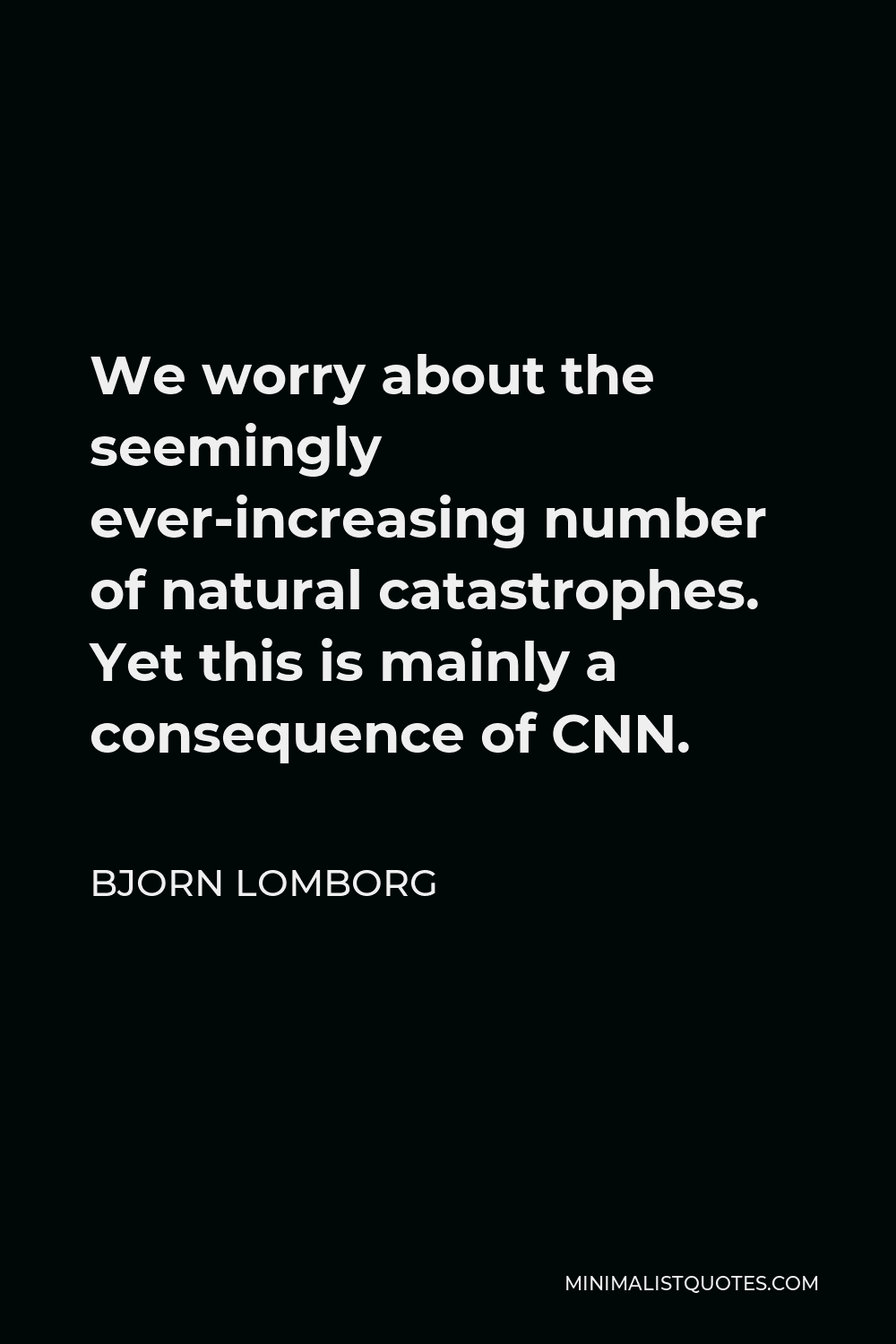
We worry about the seemingly ever-increasing number of natural catastrophes. Yet this is mainly a consequence of CNN.
BJORN LOMBORG -





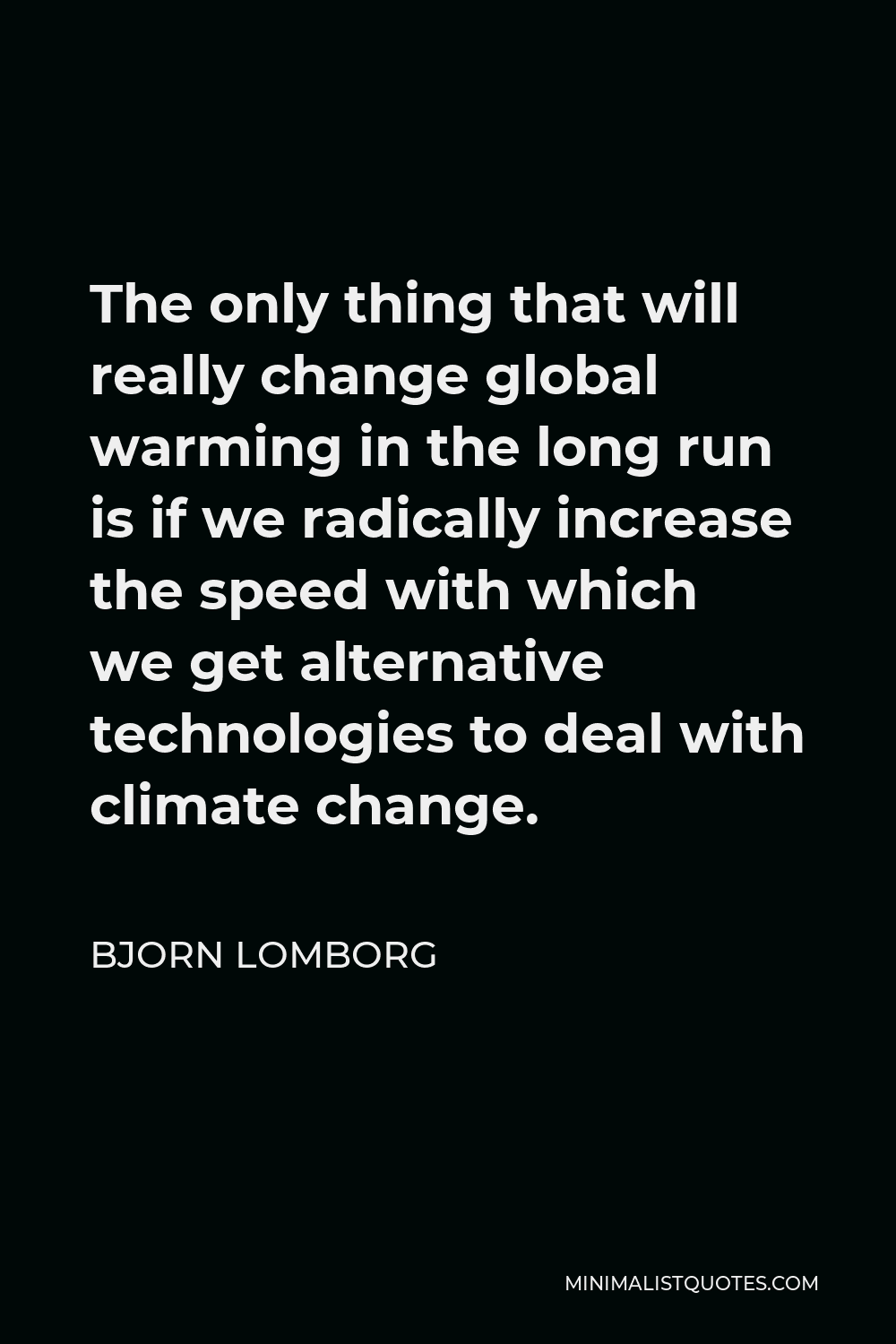
The only thing that will really change global warming in the long run is if we radically increase the speed with which we get alternative technologies to deal with climate change.
BJORN LOMBORG -





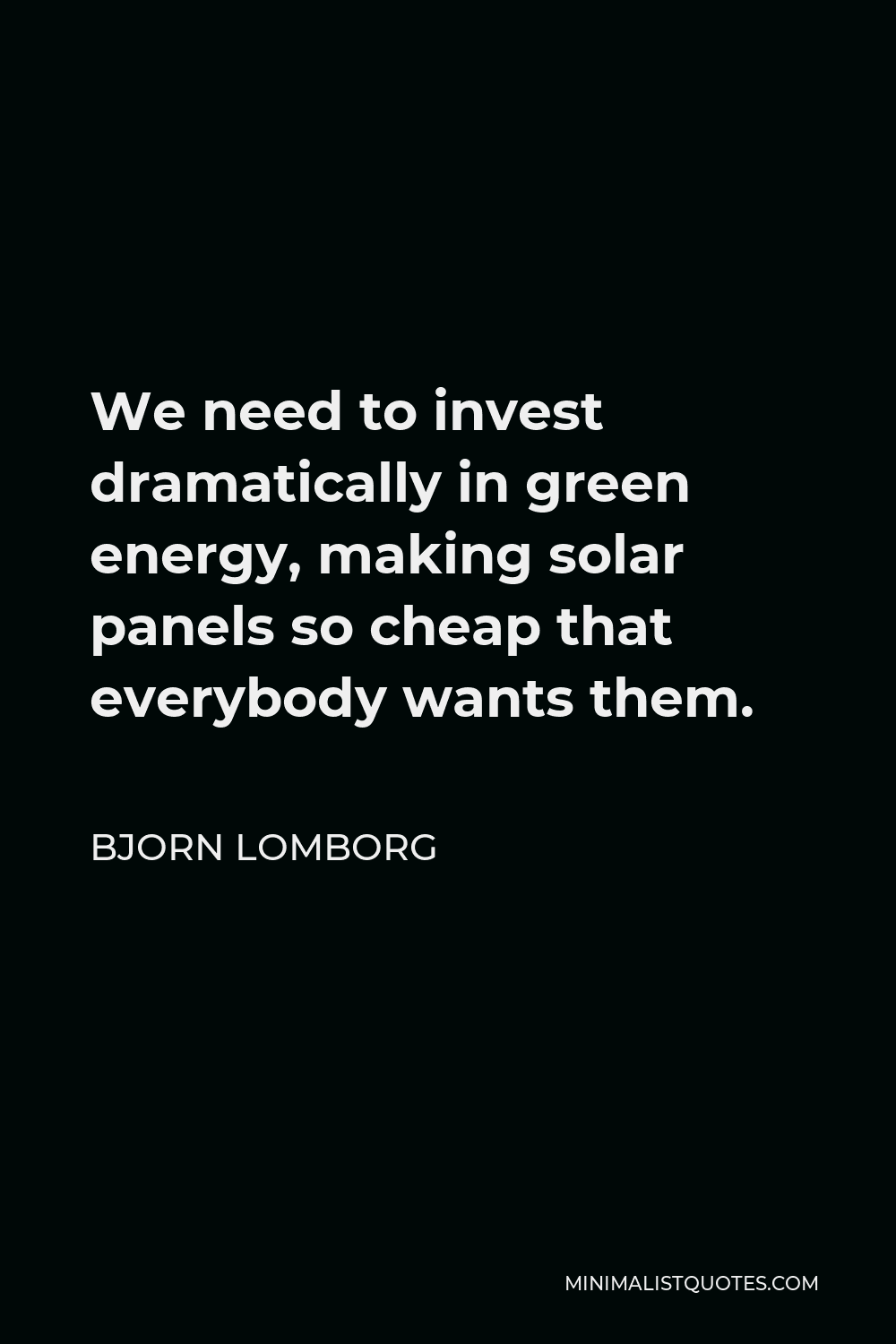
We need to invest dramatically in green energy, making solar panels so cheap that everybody wants them.
BJORN LOMBORG -






I found university a little dispiriting. I thought I would enter the great halls of Plato, but instead I entered the halls of an intellectual sausage factory. I wanted to do something not on the main course, and chose the environment.
BJORN LOMBORG -





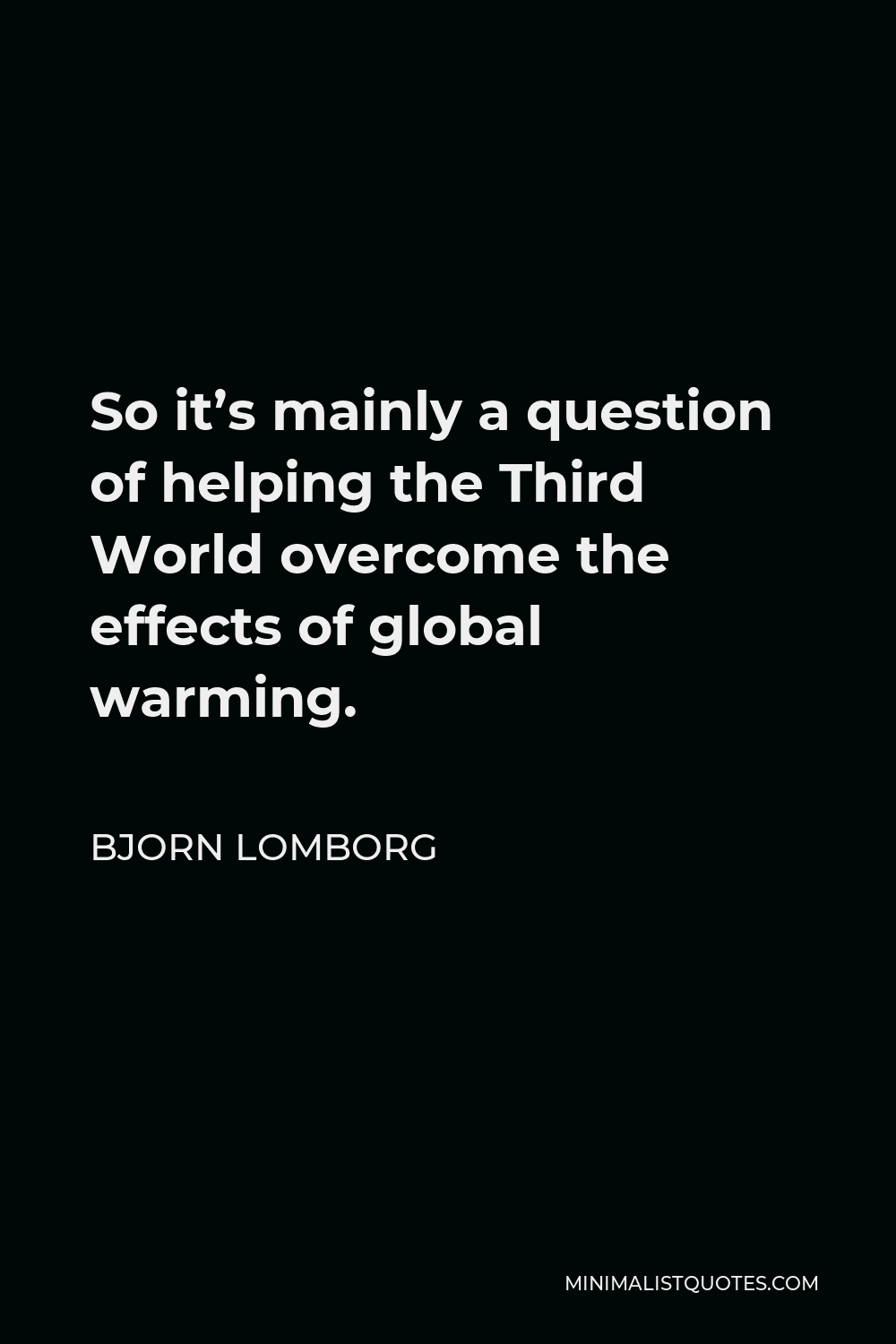
So it’s mainly a question of helping the Third World overcome the effects of global warming.
BJORN LOMBORG -





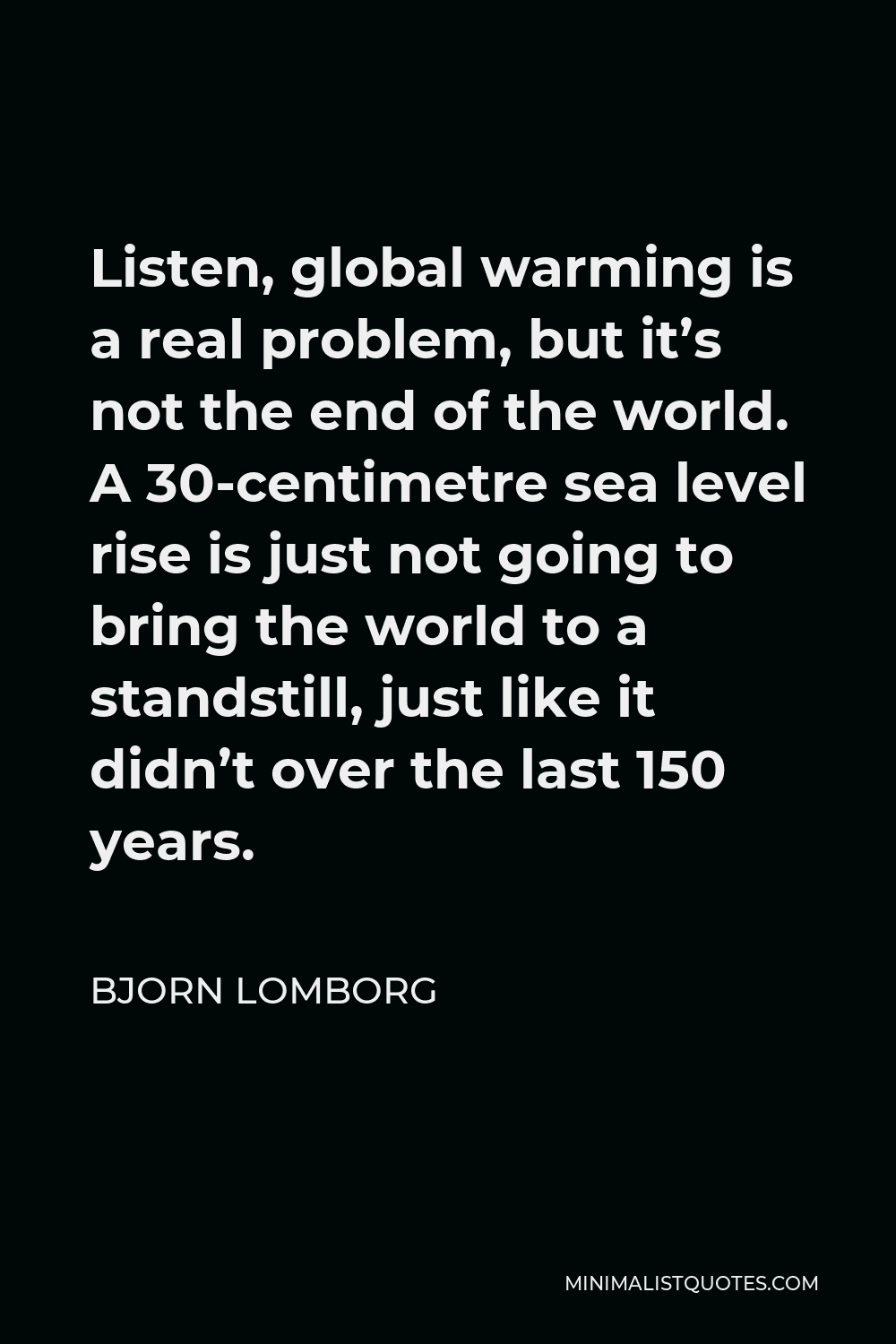
Listen, global warming is a real problem, but it’s not the end of the world. A 30-centimetre sea level rise is just not going to bring the world to a standstill, just like it didn’t over the last 150 years.
BJORN LOMBORG -





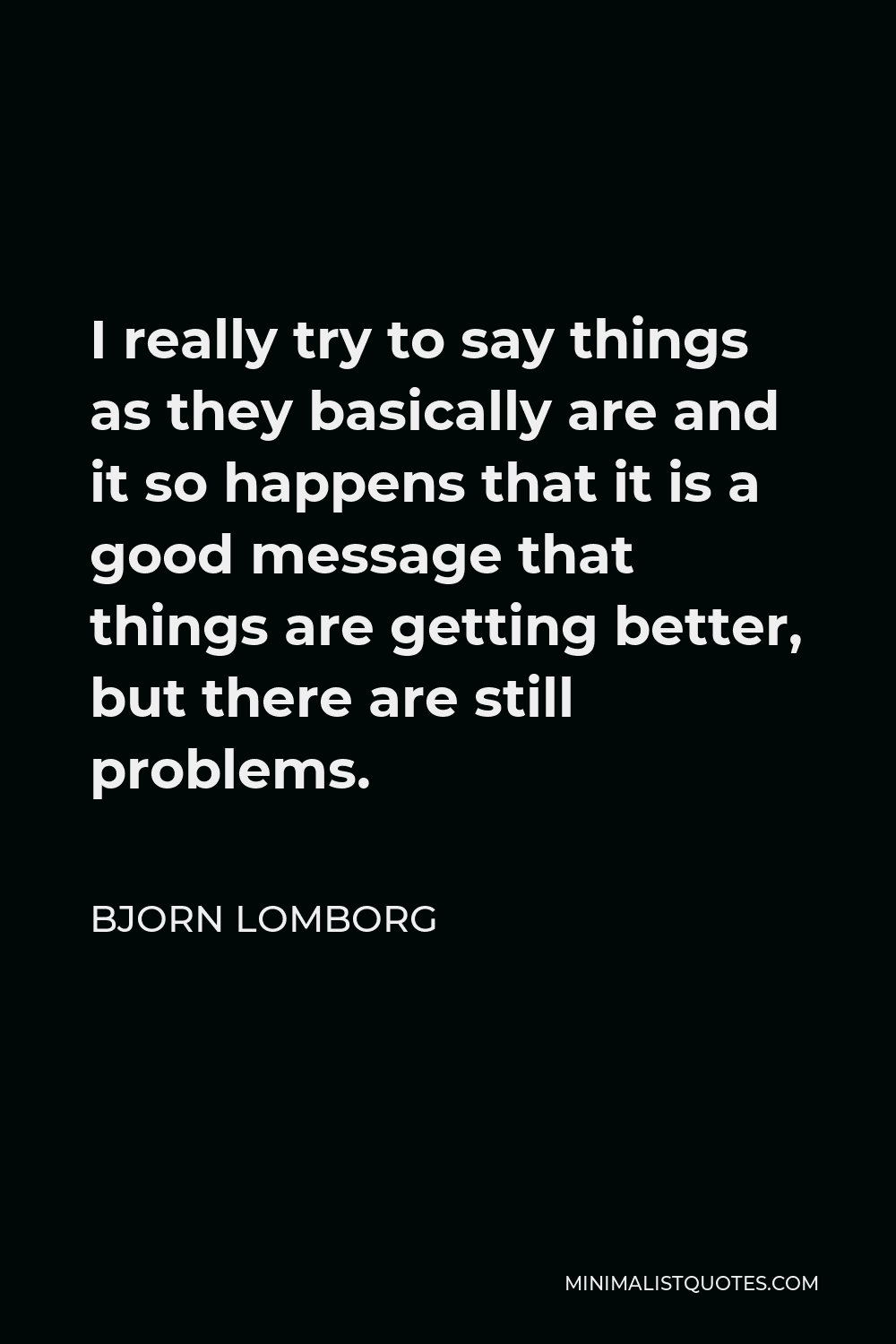
I really try to say things as they basically are and it so happens that it is a good message that things are getting better, but there are still problems.
BJORN LOMBORG -






I tentatively believe in a god. I was brought up in a fairly religious home. I think the world is compatible with reincarnation, karma, all that stuff.
BJORN LOMBORG -





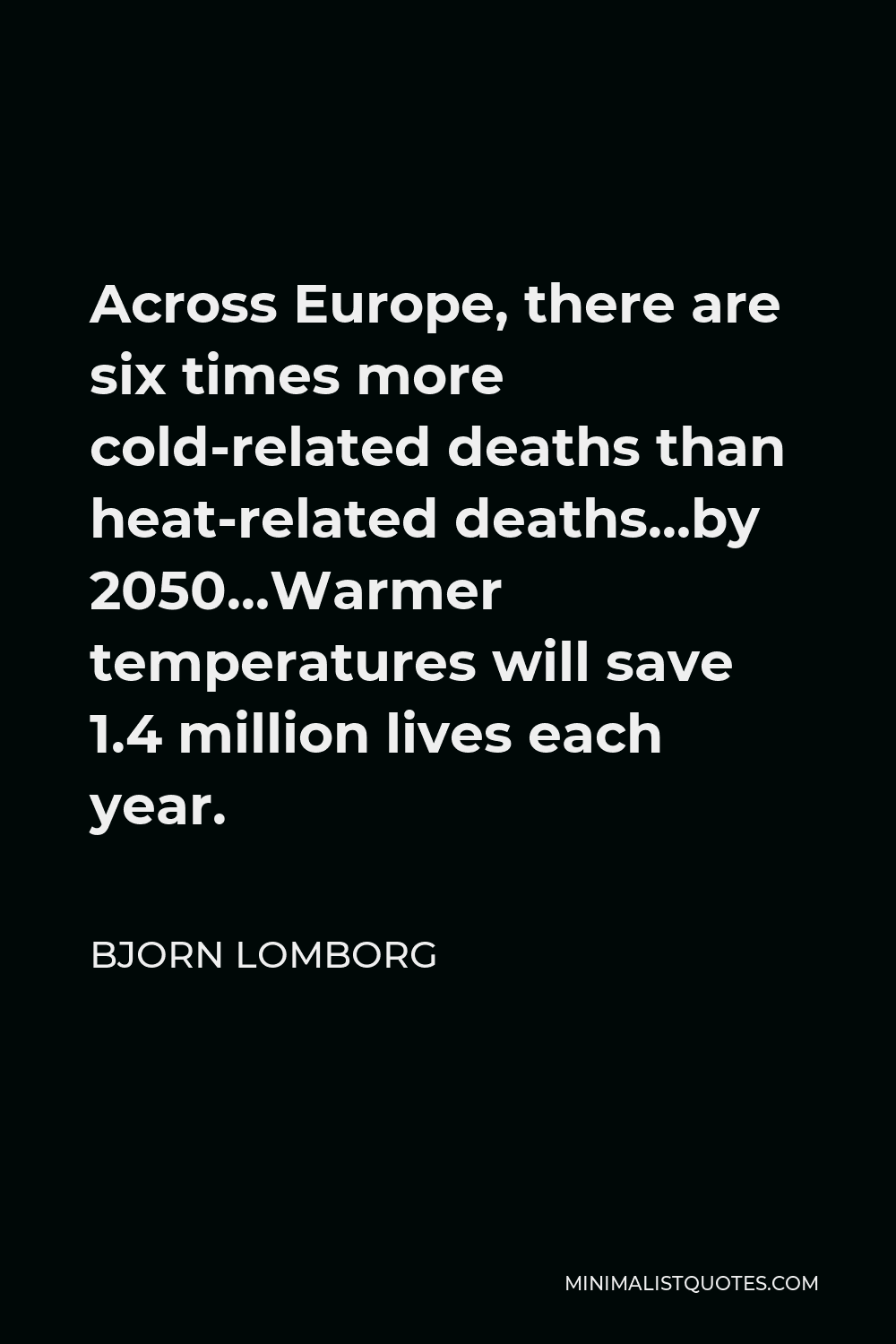
Across Europe, there are six times more cold-related deaths than heat-related deaths…by 2050…Warmer temperatures will save 1.4 million lives each year.
BJORN LOMBORG
